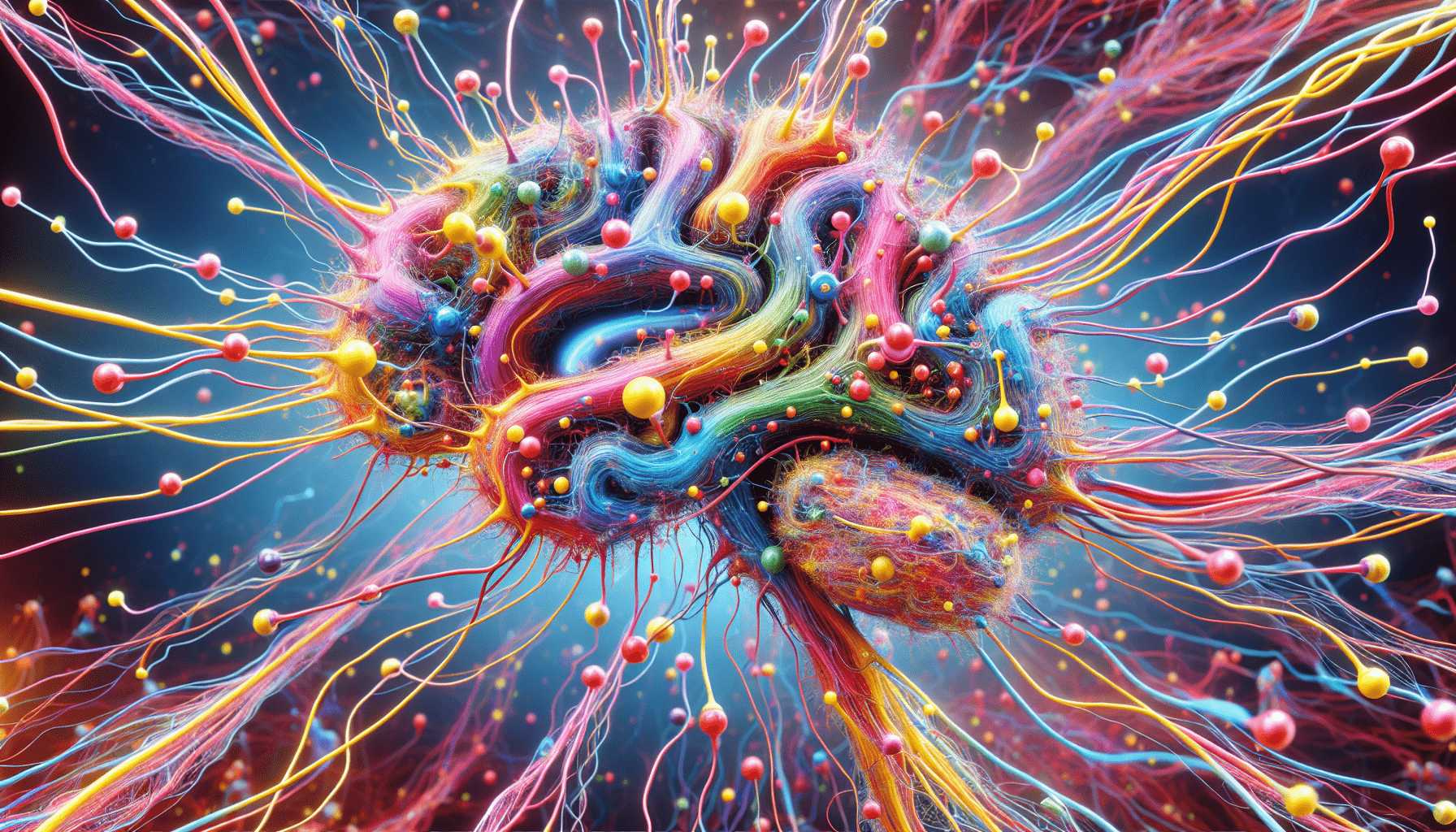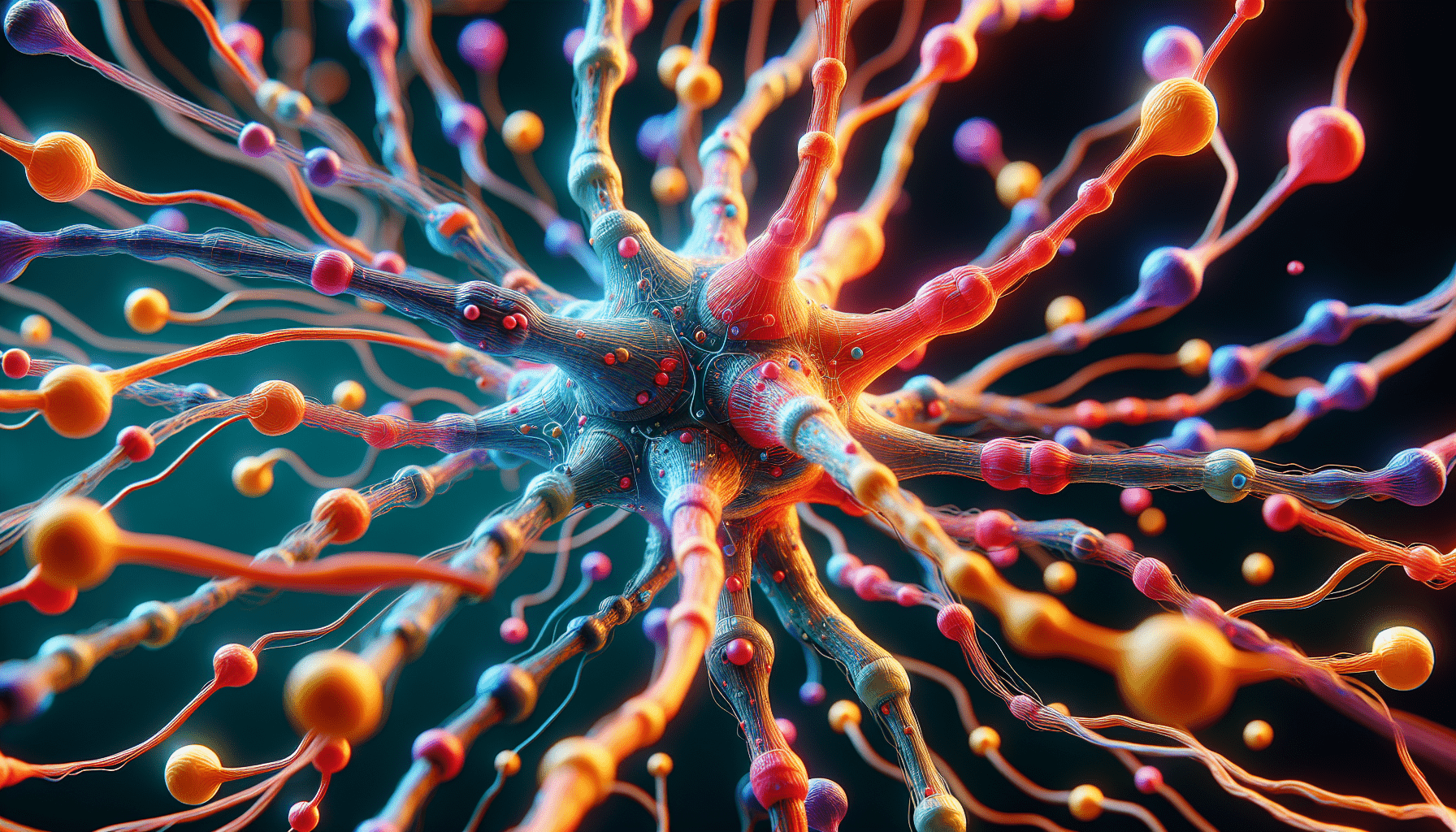Hello there! Have you ever wondered about the fascinating world of neurotransmitters and how they affect our brain and body functions? In this article, we will explore the important role that neurotransmitters play in influencing our thoughts, feelings, and behaviors. From dopamine and serotonin to acetylcholine and glutamate, each neurotransmitter has a unique impact on our overall well-being. So grab a cup of tea, get comfortable, and let’s dive into the world of neurotransmitters together! Have you ever wondered about the role of neurotransmitters in the brain and how they affect your mood, memory, and overall mental health? In this article, we will delve into the fascinating world of neurotransmitters and discuss their importance in regulating various functions in the brain and body.

What Are Neurotransmitters?
Neurotransmitters are chemical messengers that transmit signals between neurons, allowing for communication within the brain and nervous system. These chemicals play a crucial role in regulating various physiological processes, including mood, memory, sleep, and appetite. Without neurotransmitters, our brains would not be able to function properly.
Let’s break it down:
Neurotransmitters can be categorized into two main groups: excitatory and inhibitory. Excitatory neurotransmitters stimulate the brain, while inhibitory neurotransmitters help calm the brain down. The balance between these two types of neurotransmitters is essential for maintaining overall mental health and cognitive function.
Common Neurotransmitters and Their Functions
There are several key neurotransmitters in the brain, each with unique functions and roles in regulating different aspects of our mental and physical health. Let’s explore some of the most well-known neurotransmitters and their functions.
Dopamine:
Dopamine is often referred to as the “feel-good” neurotransmitter because it plays a crucial role in regulating pleasure, motivation, and reward. Low levels of dopamine have been linked to conditions such as depression and Parkinson’s disease.
Serotonin:
Serotonin is known as the “happiness neurotransmitter” because it helps regulate mood, sleep, and appetite. Imbalances in serotonin levels have been associated with conditions like depression, anxiety, and eating disorders.
GABA:
Gamma-aminobutyric acid (GABA) is the main inhibitory neurotransmitter in the brain, helping to calm the nervous system and reduce anxiety. Low levels of GABA have been linked to conditions like anxiety disorders and epilepsy.
Glutamate:
Glutamate is the most abundant excitatory neurotransmitter in the brain, playing a key role in learning, memory, and overall brain function. Imbalances in glutamate levels have been linked to conditions like Alzheimer’s disease and schizophrenia.
Acetylcholine:
Acetylcholine is involved in various cognitive functions, including memory, attention, and learning. Reduced levels of acetylcholine have been associated with conditions like Alzheimer’s disease and dementia.
Norepinephrine:
Norepinephrine, also known as noradrenaline, helps regulate the body’s response to stress and is involved in cognitive functions like attention and alertness. Imbalances in norepinephrine levels have been linked to conditions like depression and attention deficit hyperactivity disorder (ADHD).

The Impact of Neurotransmitters on Mental Health
The balance of neurotransmitters in the brain is crucial for maintaining good mental health and overall well-being. Imbalances or disruptions in neurotransmitter levels can lead to various mental health conditions and disorders. Let’s explore how changes in neurotransmitter levels can impact mental health.
Depression:
Low levels of serotonin and dopamine have been linked to depression, a common mental health disorder characterized by persistent feelings of sadness and hopelessness. Medications like selective serotonin reuptake inhibitors (SSRIs) are often prescribed to help increase serotonin levels and improve symptoms of depression.
Anxiety:
Imbalances in GABA and norepinephrine levels can contribute to anxiety disorders, which are characterized by excessive worry and fear. Antidepressants and anti-anxiety medications can help regulate neurotransmitter levels and reduce symptoms of anxiety.
Bipolar Disorder:
Bipolar disorder is a mood disorder characterized by extreme shifts in mood, energy, and activity levels. Imbalances in serotonin, dopamine, and norepinephrine levels have been associated with bipolar disorder. Mood stabilizers and antipsychotic medications can help manage symptoms of bipolar disorder by regulating neurotransmitter levels.
ADHD:
Attention deficit hyperactivity disorder (ADHD) is a neurodevelopmental disorder that affects both children and adults, causing difficulties with attention, hyperactivity, and impulsivity. Imbalances in dopamine and norepinephrine levels are often observed in individuals with ADHD. Stimulant medications like Adderall and Ritalin help increase dopamine and norepinephrine levels to improve focus and attention.
How to Support Neurotransmitter Function
Maintaining healthy neurotransmitter levels is essential for overall mental health and well-being. There are several lifestyle factors and strategies that can help support neurotransmitter function and promote optimal brain health. Let’s explore some ways to support healthy neurotransmitter levels.
Exercise:
Physical exercise has been shown to increase dopamine and serotonin levels in the brain, promoting feelings of happiness and well-being. Regular exercise can help improve mood, reduce stress, and enhance brain function.
Diet:
Eating a balanced diet rich in essential nutrients like omega-3 fatty acids, vitamins, and minerals is important for supporting neurotransmitter function. Foods like fatty fish, nuts, seeds, fruits, and vegetables can help provide the building blocks for neurotransmitter synthesis.
Sleep:
Getting an adequate amount of quality sleep is essential for maintaining optimal neurotransmitter levels and overall brain health. Sleep deprivation can lead to imbalances in neurotransmitters like serotonin and dopamine, contributing to mood disorders and cognitive impairments.
Stress Management:
Chronic stress can have a negative impact on neurotransmitter function, leading to imbalances and disruptions in the brain. Practicing stress-reducing techniques like mindfulness, meditation, yoga, and deep breathing exercises can help promote relaxation and support healthy neurotransmitter levels.
Enhancing Neurotransmitter Function with Supplements
In addition to lifestyle factors, certain supplements and nutrients can help support neurotransmitter function and promote optimal brain health. Let’s explore some popular supplements that are known to enhance neurotransmitter levels.
L-Theanine:
L-Theanine is an amino acid found in tea leaves that has been shown to increase levels of neurotransmitters like serotonin and dopamine in the brain. This compound is known for its calming and mood-enhancing effects, making it a popular supplement for reducing anxiety and promoting relaxation.
Omega-3 Fatty Acids:
Omega-3 fatty acids, found in foods like fatty fish, flaxseeds, and walnuts, are essential for maintaining healthy brain function and supporting neurotransmitter production. These fatty acids have been shown to increase serotonin and dopamine levels in the brain, helping to improve mood and cognitive function.
B Vitamins:
B vitamins, including B6, B12, and folate, play a crucial role in neurotransmitter synthesis and function. These vitamins are essential for converting amino acids into neurotransmitters like serotonin, dopamine, and GABA. Supplementing with B vitamins can help support healthy neurotransmitter levels and improve overall brain health.
Magnesium:
Magnesium is an essential mineral that plays a key role in neurotransmitter function and mood regulation. Low levels of magnesium have been associated with conditions like depression and anxiety. Supplementing with magnesium can help support neurotransmitter production and promote mental well-being.
Conclusion
Neurotransmitters are essential for regulating various functions in the brain and body, impacting everything from mood and memory to cognitive function and overall mental health. Maintaining a healthy balance of neurotransmitters is crucial for optimal brain function and well-being. By understanding the role of neurotransmitters and implementing lifestyle strategies to support their function, you can enhance your mental health and overall quality of life. Remember, taking care of your brain is just as important as taking care of your body.
